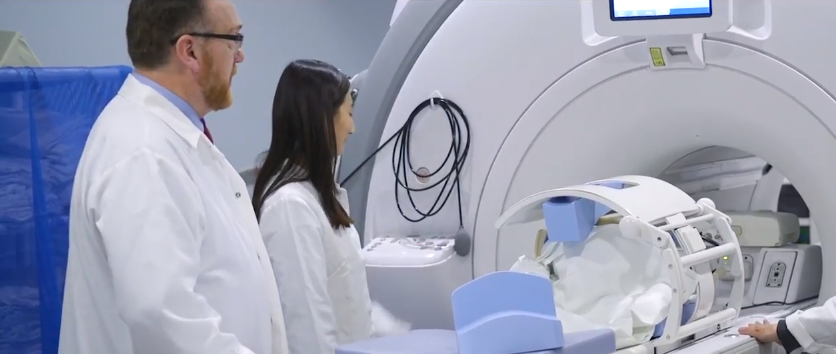Using Advanced MRI to Detect and Accurately Target Disease

Daniel B. Vigneron, PhD, wears a lot of hats: professor of radiology and biomedical imaging, professor of bioengineering and therapeutic sciences, director of the Advanced Imaging Technologies Specialized Resource Group, director of the Hyperpolarized MRI Technology Resource Center, associate director of the Surbeck Laboratory for Advanced Imaging. But all of these roles have something in common–they allow him to focus on developing hyperpolarized MRI techniques to detect, characterize and target brain and prostate tumors.
“The goal of our research is to improve understanding of what causes diseases such as cancer, diabetes, liver and kidney disease, then come up with new ways to treat them, and then follow that with our techniques,” explains Dr. Vigneron.
In this video, Dr. Vigneron describes his work and how it’s helping tens of thousands of patients with prostate cancer and brain tumors by more accurately identifying the location of cancers, monitoring whether those cancers are responding to treatment, and, as needed, adjusting the treatment to more specifically target the disease:
Dr. Vigneron and his team of researchers keep busy with a number of ongoing projects with focus on developing new metabolic MRI techniques for both basic research and clinical assessments of human diseases. Learn more by visiting the webpage of the Vigneron Lab.
